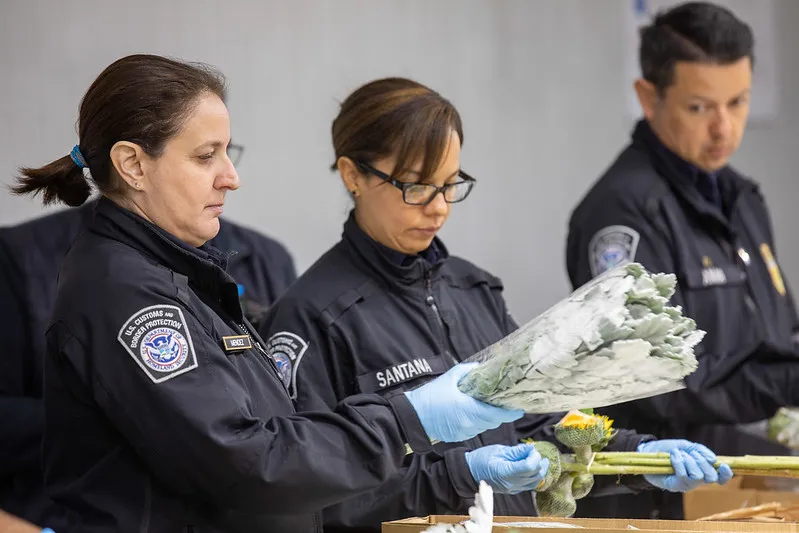MIAMI — With Valentine’s Day just around the corner, CBP is working hard to keep the critters out of the flowers you buy for your sweetheart.
Agriculture specialists with the U.S. Customs and Border Protection (CBP) at ports around the country are responsible for processing not just Valentine’s Day flowers, but all produce and other agricultural products entering the United States, ensure these products are pest and disease-free. 
Since January 1, CBP has inspected more than 1 billion cut stems transiting through our busiest ports. The majority of flowers are processed through Miami, New York and Los Angeles.
“The work that our men and women at CBP do every day is essential to prevent damages to American agriculture,” said Diane Sabatino, Director of Field Operations in Miami and Tampa. “Our airport serves as the front door for our hemispheric trade.”
The Miami International Airport remains as the top location for cut flower processing and for intercepting actionable pests. During FY2019 Agriculture Specialists inspected 2.5 million stems and over 5,000 actionable pests.
Imported flowers may carry hitchhiking pests and diseases that could cause millions of dollars in damage to the U.S. flower industry and beyond. While the vast majority of flowers entering the country are safe, even one hitchhiking pest or plant disease can cause significant damage to American agriculture. It’s critically important not only to consumers, but to the vitality of the U.S. economy that cut flower imports are carefully inspected by CBP agriculture specialists.
If pests or diseases are found, the shipments may be treated and released, re-exported, or destroyed. Examples of past interceptions found by agriculture specialists include species of Noctuidae and Aphididae, commonly known as the Owlet Moth and aphids respectively.
The top three types of flower shipments in the U.S. during the Valentine’s season so far this year have been roses and mixed bouquets, and the top three countries of origin are Colombia, Ecuador and the Netherlands.
Follow us on Twitter @CBP @CBPFlorida @CBPCaribbean

